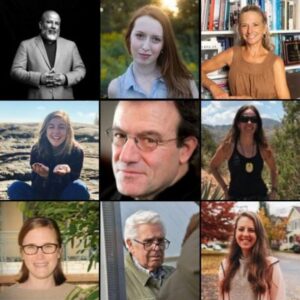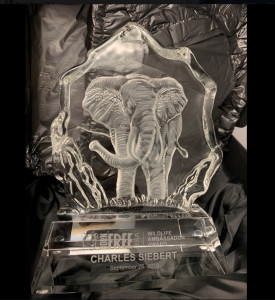
Each academic year, the COE gathers a small group of Wesleyan faculty members, a scholar of prominence from outside Wesleyan, and undergraduate students into a year-long academic think tank on a critical environmental issue. The aim of the COE Think Tank is not only to generate a deeper understanding of the thematic issue, but also to produce scholarly works that will influence national/international thinking and action on the issue. The Think Tank theme for 2021-22 is visualizing environmental change.
Our 2021-22 COE Think Tank faculty fellows are: Suzanne O’Connell, the Harold T. Stearns Professor of Earth Science; Jennifer Raynor, assistant professor of economics; Courtney Fullilove, associate professor of history; Helen Poulos, adjunct assistant professor of environmental studies; Antonio Machado-Allison, university professor in the College of the Environment; and Alton C. Byers, senior research scientist at the Institute of Arctic and Alpine Research (INSTARR) at the University of Colorado at Boulder and this year’s Menakka and Essel Bailey ‘66 Distinguished Visiting Scholar in the College of the Environment. Olivia Baglieri ’22, Dylan Judd ’22, and Skye Hawthorne ’22 will also be joining the Think Tank as student fellows this academic year.

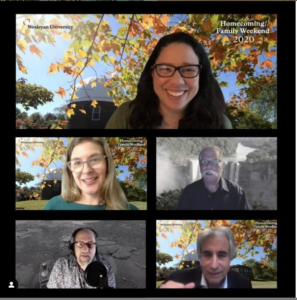 As part of the 18th annual Where On Earth Are We Going? Robert F. Schumann Environmental Studies Symposium, David Grinspoon and Martha Gilmore presented their talk, “Habitability and Life on Venus,” on October 17, 2020.
As part of the 18th annual Where On Earth Are We Going? Robert F. Schumann Environmental Studies Symposium, David Grinspoon and Martha Gilmore presented their talk, “Habitability and Life on Venus,” on October 17, 2020.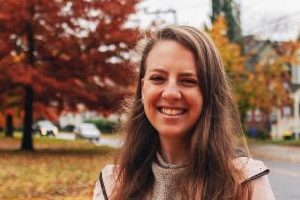 Melissa Thornton ’20 is a current College of Environment Think Tank fellow from Atlanta, Georgia, and a winner of this year’s Sophie and Anne Reed Prize for best poem or group of poems at Wesleyan. A double major in the COL and French Studies, Melissa shared her thoughts on the importance of poetry in times of chaos.
Melissa Thornton ’20 is a current College of Environment Think Tank fellow from Atlanta, Georgia, and a winner of this year’s Sophie and Anne Reed Prize for best poem or group of poems at Wesleyan. A double major in the COL and French Studies, Melissa shared her thoughts on the importance of poetry in times of chaos.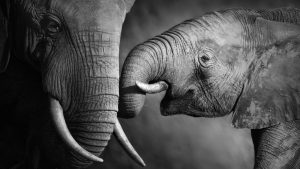 Meaning and language are commonly thought to be the exclusive province of humans. But is this thinking simply our own anthropocentric conceit? On November 2, 2019, Menakka and Essel Bailey ‘66 Distinguished Visiting Scholar in the College of the Environment Charles Siebert led a discussion about the nature of meaning in the world, the myriad of forms in which it manifests, and the many ways in which they inform our place in the world. The discussion, What on Earth Are They Saying: Listening and Learning Beyond the Human, was the 17th Annual Where on Earth Are We Going? seminar sponsored by the Robert F. Schumann Institute of the College of the Environment.
Meaning and language are commonly thought to be the exclusive province of humans. But is this thinking simply our own anthropocentric conceit? On November 2, 2019, Menakka and Essel Bailey ‘66 Distinguished Visiting Scholar in the College of the Environment Charles Siebert led a discussion about the nature of meaning in the world, the myriad of forms in which it manifests, and the many ways in which they inform our place in the world. The discussion, What on Earth Are They Saying: Listening and Learning Beyond the Human, was the 17th Annual Where on Earth Are We Going? seminar sponsored by the Robert F. Schumann Institute of the College of the Environment.